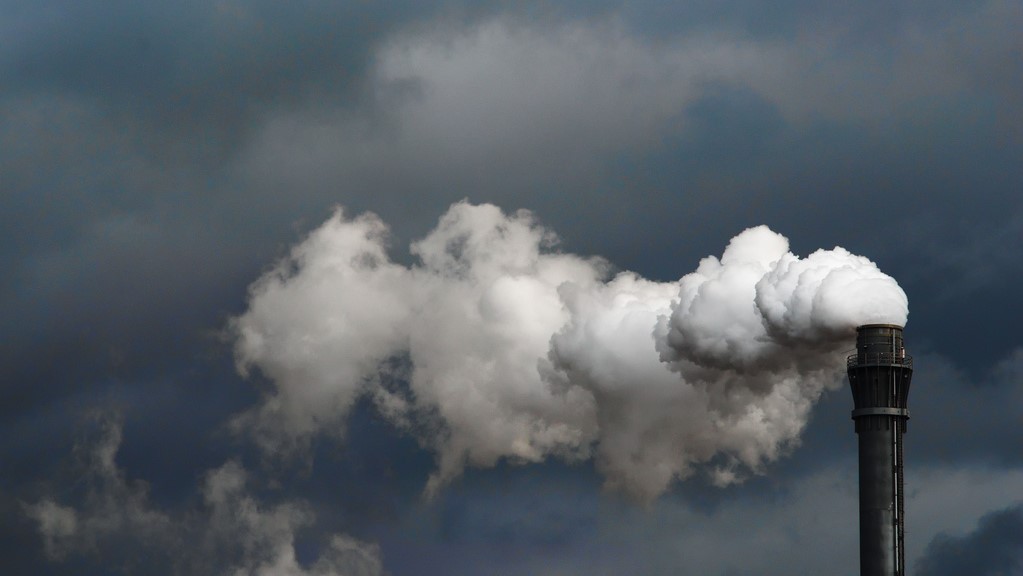Budget 2019: Climate experts, economists and activists ‘shocked’ by carbon tax exclusion

October 8th, 2018
The Government’s U-turn on increasing the carbon tax in Budget 2019 is both “shocking and depressing”, one of Ireland’s leading climate economists has said.
Last month, the Taoiseach said that Budget 2019 will include an increase in the carbon tax, currently €20 per tonne, to help Ireland meet its obligations in tackling climate change.
However, the proposed boost in the tax to €30 was dropped from the budget following last-minute cabinet discussions.
The carbon tax, introduced in 2013, applies to kerosene, marked gas oil, liquid petroleum gas, fuel oil, natural gas and solid fuels.
The original charge of €10 per tonne of CO2 emitted rose to €20 per tonne in 2014 and has stayed at this rate since.
Today’s decision is “an abject failure of political courage and leadership” according to climate economist, Joseph Curtin.
If Ireland, a small relativly well governed & wealthy country with a booming economy, can't deliver a miserable 10 euro increase in the carbon tax, one day after the most urgent IPCC report yet, then we truly are doomed.
Truly shocking & abject failure of political leadership.
— jmcurtin (@jmcurtin) October 9, 2018
‘Shocking and depressing’ decision
The Institute of International and European Affairs researcher told The Green News that the decision ensures that Ireland’s position as Europe’s “worst performer on climate change” is not set to improve “any time soon”.
“What makes this decision so shocking and depressing is that Ireland is a small, cohesive, and relatively well-governed country with a booming economy. If it can’t take responsibility for this global crisis and looming catastrophe, who will?” he asked.
Mr Curtin is a member of the State’s climate change advisory body that recommended that the carbon tax should be bumped up to €30 per tonne in Budget 2019.
This would be an “essential component” in achieving a low-carbon transition by mid-century, the body said.
Mr Curtin said today, however, that the Cabinet does not seem “able to look beyond the next General Election”.
On the day @IPCC_CH publishes landmark #SR15 report on limiting warming to 1.5ºC, deeply troubling report in @Independent_ie that anticipated increase in the carbon tax in #Budget2019 may be postponed. If true, it would mark a new low in #Ireland's response to #climatechange https://t.co/N3qowlfM9e
— Diarmuid Torney (@diarmuidtorney) October 8, 2018
Sending weak message
The Budget launch comes just one day after the launch of a landmark Intergovernmental Panel on Climate Change’s (IPCC) special report on emissions.
The report states that it is possible to limit global warming to the 1.5 °C threshold but only with deep emissions cuts from all countries.
The decision sends a “very weak message to the world and the people of Ireland” about our climate ambitions, the Environmental Pillar said today.
The coalition of national environmental groups said that the tax is “vital” in tackling emissions, protecting our environment, and bringing in additional revenue.
Pillar’s spokesperson Charles Stanley-Smith said that the tax is “a lever that we can pull immediately” to support the State’s long-term targets such as the retrofitting of 45,000 homes by 2021.
Speaking yesterday, Dublin City University climate expert Diarmuid Torney said that the postponement of a carbon tax increase would “mark a low in Ireland’s response to climate change”.

Industrial Emissions Photo: Dirk Duckhorn
According to Friends of the Earth Director Oisin Coghlan, all of Leo Varadkar’s “fine words” about climate action will now be seen as “hot air”.
The u-turn, he said, is a “giant two-fingers to younger generations” who will face the wider impacts of climate change.
The move was also an insult to the Paris Agreement and the hundreds of millions “already living with the devastating impacts of climate change in Africa, Asia and Latin America”, he added.
Irish Rural Link said today that it welcomed the Government’s decision not to increase carbon tax as this will “protect the incomes of most vulnerable”.
“We now call on the Department of Finance to hold dialogue with interested stakeholders to discuss fuel poverty in context with carbon emissions,” the group tweeted today.
Mr Coghlan said, however, that carbon tax can incentivize investment towards “cleaner, less polluting options” without impacting rural or lower income families.
“Other taxes can be reduced, the income can be recycled to support the transition and in the most radical model the revenue can be repaid as a dividend to every adult, giving a cash reward to everyone who reduces their own carbon footprint,” he added.

Photo: Jonathan Petersson
There was a one per cent increase in the VRT surcharge for diesel cars across all bands in Budget 2019. Environmental groups had expressed the need to equalise the cost of diesel and petrol.
Diesel is currently charged at 11c less per litre than petrol and Ireland has one of the highest percentage sales of diesel cars in Europe.
The State has been told by the OECD that this preferential tax rate has “little economic, social or environmental rationale”, while the European Commission said to even out this “environmentally unjustified” gap.
Last July, the Department of Finance’s tax strategy group itself found that dieselisation is a “growing issue” that, if left unaddressed, will “result in negative environmental and health outcomes”.
More recently, the Economic and Social Research Institute found that increasing the excise duty on diesel to the level of petrol could bring in €500 million a year and also reduce dangerous emissions.
The Environmental Pillar said that an increase in excise would also have helped stave off the health risks from diesel that is linked to Alzheimer’s, slower brain development in children and heightened risk of diabetes and preterm births.
“Budget 2019 was an opportunity to try and change this situation not just for our planet but for the health of the Irish people here and now. The Government has clearly gone in a disappointing direction,” the Pillar said.
I see the first three measures under "climate change" are subsidies for agriculture, when these subsidies, especially for suckler beef, INCREASE emissions.
This is a Father Ted budget by @campaignforleo
I've fixed your list of "climate" measures below pic.twitter.com/8HkUIeyY3f
— jmcurtin (@jmcurtin) October 9, 2018
What’s in the Budget?
There will be just over €100m put aside in Budget 2019 for planting forests, although the Government did not specify how this pot will be split between the planting of native woodland and conifer plantations that have been heavily criticised by environmental and farming groups.
The budget also sets aside €70m for the environment and waste management programme, as well as funding for a Beef Environmental Efficiency Pilot and an agricultural modernisation scheme.
Mr Curtin said on Twitter this afternoon, however, that these measures are actually “subsidies for agriculture” that will actually lead to an increase in emissions.
[x_author title=”About the Author”]







